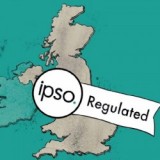 A convict who used her child’s health as part of her defence complained to the press watchdog after it was mentioned in a regional daily’s court report.
A convict who used her child’s health as part of her defence complained to the press watchdog after it was mentioned in a regional daily’s court report.
Rebecca McAllister claimed the publication of the information by the Bolton News represented a breach of privacy, even though it was heard in open court when no reporting restrictions were in place.
McAllister, who had admitted two counts of unfair commercial practices and three breaches of EU cosmetic regulations, also took issue with the News’s characterisation of her as having “conned” people.
The Independent Press Standards Organisation dismissed her claims after the News provided contemporaneous court notes to its investigation.
The court heard McAllister had “sold two women courses in beauty which she claimed were National Vocational Qualifications [NVQs] but she was not certified to deliver these”, while the News also reported her lawyer had stated “she had no means and was the carer for four children including one who was seriously unwell”.
Complaining under Clause 1 (Accuracy), Clause 2 (Privacy) and Clause 9 (Reporting of crime) of the Editors’ Code of Practice, McAllister accepted that she had pleaded guilty, but said she had only put forward a guilty plea because of a deal made with the council and had been qualified to deliver the NVQs.
Defending its use of the term “conned”, the News said McAllister had sold a course which she was not qualified to deliver, and that people paid money for her course expecting a qualification which they did not obtain.
It added the information about her child’s health had been heard in open court and argued it was therefore of genuine relevance.
IPSO found that in circumstances where the charges McAllister had pleaded guilty to pertained to breaching commercial regulations, and she did not dispute she had profited from these breaches, it did not consider it unreasonable to characterise this as her having “conned” people.
As the News was able to supply the reporter’s notes to support its position that this figure had been heard in court, the Committee was satisfied the publication had taken care not to report inaccurate information.
IPSO further found that unless a court puts restrictions on reporting, newspapers are allowed to publish information that has been made public in open court.
Where McAllister’’s child had been mentioned in her defence in court, they were clearly relevant to the story of the story, which was a report of court proceedings against her.
The Committee also noted that no identifying information, such as their name or age, was included.
The complaint was not upheld, and the full adjudication can be read here.





 Follow HTFP on Twitter
Follow HTFP on Twitter